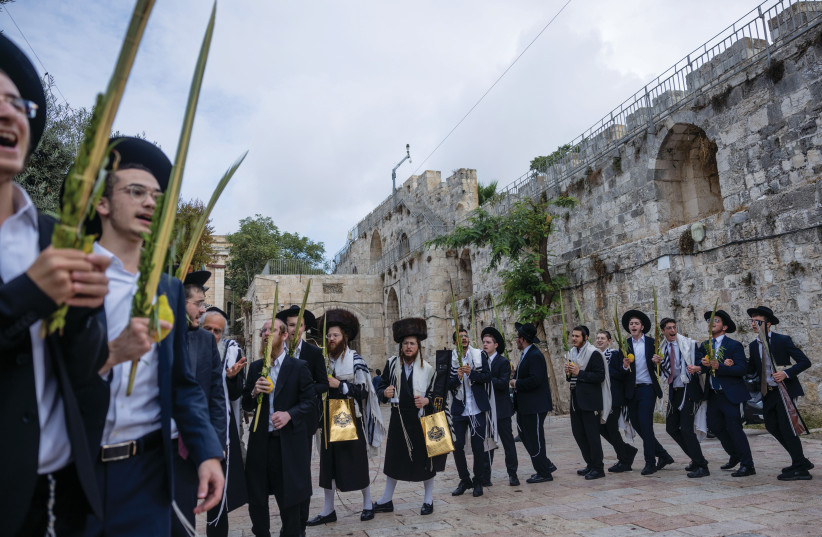At the heart of the High Holy Days – encompassing Rosh Hashanah, Yom Kippur, Sukkot, and Simchat Torah – is the forging of unique connections with the Divine. While Rosh Hashanah and Yom Kippur lead us to God through awe and reverence, Sukkot and Simchat Torah beckon through the embrace of joy. These holidays in the month of Tishrei bear a universal message.
On Rosh Hashanah, our prayers extend towards peace for the entire world, encapsulated in the poignant prayer, “v’yitnu echa keter melucha” (“All your creations shall crown you as king”). This prayer underscores the unity and interconnection of all humanity with God – who embodies mercy. This perspective holds a universal appeal, seeking common threads among all people for the betterment of the world.
Yom Kippur introduces us to the Book of Jonah, a tale centered on Jonah’s mission to bring the people of Nineveh to repentance. His initial evasion of God’s call eventually leads to a transformative journey within the belly of a whale, culminating in his own repentance as well as the redemption of Nineveh. The message of the Book of Jonah transcends boundaries. It asserts that ultimately, all will return in repentance, yearning to mend the world. This message emanates compassion and universal mercy, aspiring to save all of humanity and construct a world founded upon the principles of justice and human equality.
Sukkot, too, carries a universal message. We leave our permanent abodes to sojourn in the temporary sukkah, teaching us about the fragility of human existence.
Sukkot during the times of the Tempes
In the times of the First and Second Temples, Sukkot was celebrated with the sacrifice of 70 bulls, symbolizing the 70 nations of the world, underscoring the holiday’s global significance. Sukkot celebrates nature, grounding us in our environment and inculcating a sense of responsibility towards the natural world.

The sukkah we dwell in, nestled within the embrace of nature, symbolizes a sanctuary of peace, uniting all corners of humanity. On Simchat Torah, our prayers plead for rain and a year of blessings and abundance. In this prayer, we include all of humanity, wishing that the rain may bless all.
The internal, universal connection between all of the holidays of Tishrei binds all segments of the Jewish people, regardless of perspective or belief – and emphasizes their connection to the other nations of the world. Tishrei strengthens fraternity and partnership in the grand narrative of human culture through a period of personal renewal and global cosmic evolution by enabling a deeper connection with God.
May we merit a year filled with goodness and blessings, a year that nurtures connections among all people, a year in which we embrace nature and the environment, and a year marked by compassion, love, and lasting peace.
The writer is dean of the Faculty of Education and head of The Sal Van Gelder Center for Holocaust Research & Instruction at Bar-Ilan University.
